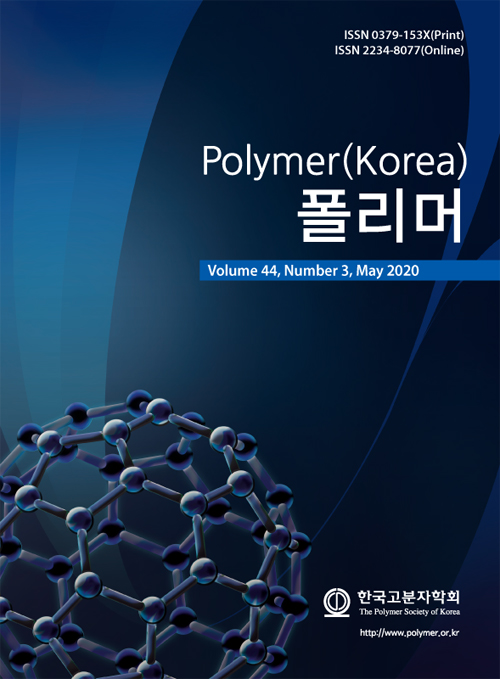- Standard Energy Computations of Cr(VI) Adsorption via Dissociated Products of Carbonic Acid
Soon Hong Lee, Joon Hyuk Lee*, Joo Young You, Woo Jeong Lee, Jeong Min Kwon, and Sang Sun Choi†

Department of Environmental Engineering, Anyang University, Anyang 14028, Korea
*Department of Chemical Engineering, Hanyang University, Seoul 04763, Korea- 탄산의 해리에 따른 Cr(VI) 흡착거동 및 표준 에너지 변화연구
안양대학교 환경공학과, *한양대학교 화학공학과
The selective utilization of
dissociated products of carbonic acid to induce either pH control or adsorption
of heavy metal ions on the surface of an adsorbent could be generally achieved
by the gas-phased mixture of CO2 and H2O (CHM). Given
that the reduction of chromium (Cr(VI)) has occupied a growing niche within
industrial sectors, we present a set of computation data to observe standard
energies and the adsorption behavior via CHM under the aqueous solution.
Herein, activated carbon fibers (ACF) were adapted as a skeleton absorbent.
With a cross-validation on physicochemical characteristics, thus-produced
sample (CACF) revealed a decrement in the specific surface by 9.58%, but also
experienced an increment of 33.40% in surface functional moieties compared to
ACF. In terms of adsorption capacity, CACF showed 6.36% more Cr(VI) adsorption
capacity than ACF with 200 mg of initial adsorbent amount at 323 K. Based on our calculations, the Langmuir isotherm
was favored by all samples. Adsorption behavior was found to be spontaneous and
feasible in nature over certain temperature. Lastly, thermodynamic parameters
successfully underpinned that the physio-sorption was found to be dominant
compared to the chemisorption,
증기 상태에서의 CO2와 H2O 혼합물(CHM)은 일시적으로 생성되는 탄산해리의
부산물로 pH를 조정하거나 중금속 이온의 표면흡착에 유용화될 수 있다.
산업계에서 Cr(VI)에 대한 제거수요가 증대됨을 인지하였을 때, 본 연구에서는 CHM과
Cr(VI) 간 발생하는 표준 에너지 및 흡착 동역학을 고찰하였다. 여기에서, 활성탄소섬유(ACF)가 흡착제로 사용되었다. 물리화학적 거동에 대한 상호분석 결과, CHM이 적용된 ACF인 CACF는 기존 ACF 대비 9.58%의 비표면적 감소 및 33.40%의 산소 관능기 증대를 가져왔다. 특히, Cr(VI)에 대한 흡착을
200 mg의 흡착제와 323 K 조건 하에서 수행하였을 때 CACF는 기존 대비 6.36% 향상된 흡착능을 보여주었다. 흡착 동역학은 Langmuir isotherm에 부합되었으며 표준
에너지 역시 화학적 흡착보다는 물리적 흡착이 보다 설명에 적합함을 나타내었다.
Keywords: hexavalent chromium, activated carbon fibers, kinetics, thermodynamics, physio-sorption
- Polymer(Korea) 폴리머
- Frequency : Bimonthly(odd)
ISSN 0379-153X(Print)
ISSN 2234-8077(Online)
Abbr. Polym. Korea - 2023 Impact Factor : 0.4
- Indexed in SCIE
 This Article
This Article
-
2020; 44(3): 295-300
Published online May 25, 2020
- 10.7317/pk.2020.44.3.295
- Received on Jan 13, 2020
- Revised on Mar 9, 2020
- Accepted on Mar 10, 2020
 Correspondence to
Correspondence to
- Sang Sun Choi
-
Department of Environmental Engineering, Anyang University, Anyang 14028, Korea
- E-mail: choiss@anyang.ac.kr









 Copyright(c) The Polymer Society of Korea. All right reserved.
Copyright(c) The Polymer Society of Korea. All right reserved.